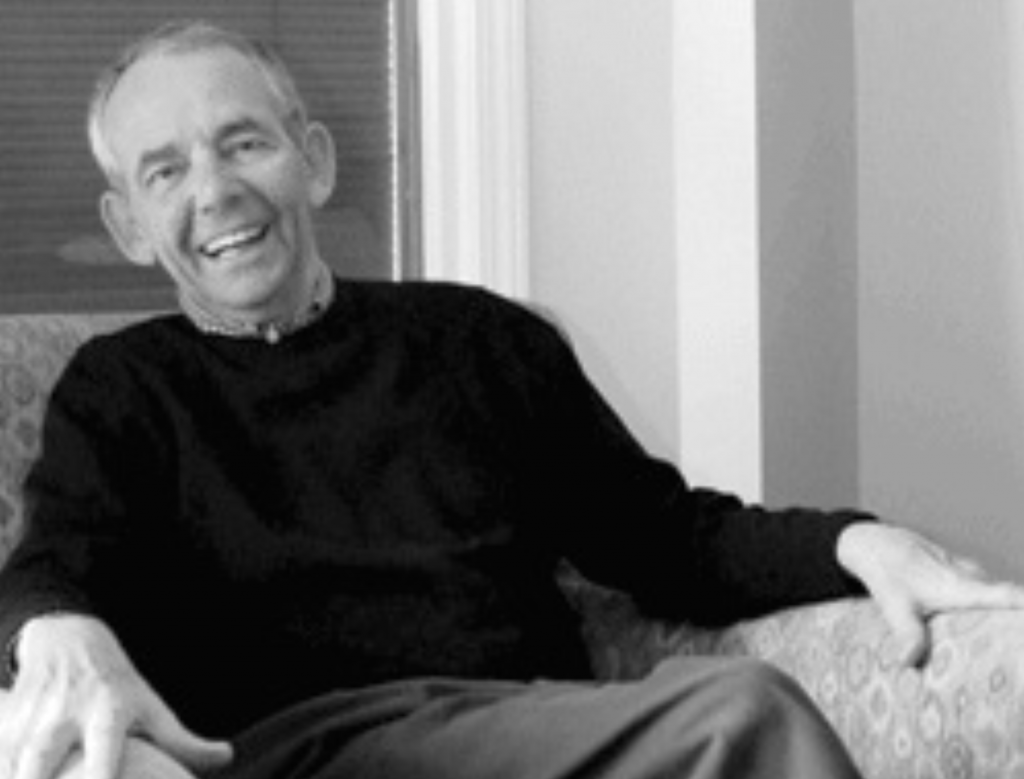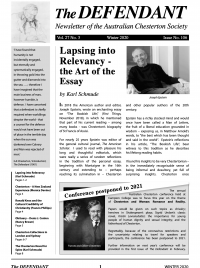In 2018 the American author and editor, Joseph Epstein, wrote an enchanting essay on “The Bookish Life,” (First Things, November 2018), in which he mentioned that part of his current reading – among many books – was Chesterton’s biography of St Francis of Assisi.

For nearly 25 years Epstein was editor of the general cultural journal, The American Scholar. I used to read with pleasure his long and thoughtful editorials, which were really a series of random reflections in the tradition of the personal essay, beginning with Montaigne in the 16th century and extending to – perhaps reaching its culmination in – Chesterton and other popular authors of the 20th century.
Epstein has a richly stocked mind and would once have been called a Man of Letters, the fruit of a liberal education grounded in wisdom – exposing us, in Matthew Arnold’s words, to “the best which has been thought and said in the world”. Epstein’s reflections in his article, “The Bookish Life”, bear witness to this tradition as he describes his lifelong reading habits.
I found his insights to be very Chestertonian – in the immediately recognisable sense of being informal and desultory, yet full of surprising insights. Chesterton once introduced a book of introductions he had written to the works of various authors (“prefaces to which other people have fervently contributed excellent books”) by describing them as “scraps of scribbling” that showed “occasional lapses into relevancy”. (G.K.C. as M.C., 1929)
Epstein has a similar talent for lapsing into relevancy. His reading habits are rather casual and unsystematic – reflecting, as he admits, his multiple and changing interests – and yet they are underpinned by a devotion to the pursuit of illuminating truths.
He is resistant to recommended lists of “best books”, which he sees as undesirably limiting – they leave out too many other worthy books. Trying to define “best books” is based on a mistaken “yearning for a direct route to wisdom” for which, he believes, there is no map or blueprint or shortcut.
Epstein is not explicit about whether certain works merit the description of “Great Books”, but he might endorse the advice of the American classics professor, John Senior, that there are very many “Good Books” everyone should read. Senior once proposed a list of a thousand such works, which prepare the cultural soil for any higher reading. He argued that “the seminal ideas of Plato, Aristotle, St Augustine and St Thomas thrive only in an imaginative ground saturated with fables, fairy tales, stories, rhymes, and adventures.” (The Death of Christian Culture, 1978)
The search for books worth reading leads Epstein to enjoy the unexpected discovery. He loves second-hand bookstores – as “places where you find books you didn’t know you wanted”. He laments the likely loss of the independent bookstore in the digital age, citing his late friend, the American sociologist Edward Shils, who thought that bookstores – and particularly used bookstores – were a crucial pathway to education.
This advice fits in with Chesterton’s lifelong stress on the imagination – as necessary for seeing reality as it is, so often staled by familiarity. For this reason Chesterton, as the practising journalist he was, saw the importance of fiction in conjunction with fact:
“Every healthy person at some period must feed on fiction as well as fact; because fact is a thing which the world gives to him, whereas fiction is a thing which he gives to the world.”
Human beings, he argued, “cannot be human without some field of fancy or imagination; some vague idea of the romance of life; and even some holiday of the mind in a romance that is a refuge from life.” (“Fiction as Food,” The Spice of Life, 1964)
Speed reading – and slow reading
What is at odds with dwelling in “some field of fancy or imagination”, or taking time for a “holiday of the mind”? Epstein believes it is the practice of speed reading, which he abhors. He recalls Woody Allen’s famous comment that, after taking a speed-reading course, he got through Tolstoy’s War and Peace in twenty minutes. “It’s about Russia,” he concluded.
Epstein’s firm preference is for “slow reading”, which allows for savouring, not simply swallowing, and is likely to yield deeper understandings as a result of digested reading and reflecting.
“I myself rarely read,” he says, “more than twenty-five or thirty pages of a serious book in a single sitting.” He relishes the experience of not rushing through a novel by Thomas Mann, a short story by Chekhov, or an essay by Max Beerbohm. “After all,” he muses, “you never know when you will pass this way again.”
Thus he is not keen on novels or biographies described as “page-turners”. “I prefer,” he writes, “to read books that are page-stoppers, that cause me to stop and contemplate a striking idea, an elegant phrase, an admirably constructed sentence. A serious reader reads with a pencil in hand to sideline, underline, make a note.”
One of Epstein’s remarks most reminiscent of Chesterton is his desire to avoid the trap of only reading present-day works. Aldous Huxley raised this problem in the 1930s. In a scientific age when people feel forced to “keep up”, Huxley worried that the pressure to be well informed could prove incompatible with cultural perspective.
“To be well informed,” he wrote, “one must read quickly a great number of merely instructive books. To be cultivated, one must read slowly and with lingering appreciation the comparatively few books that have been written by men who lived, thought and felt with style.” (Texts and Pretexts, 1932)
In Epstein’s words: “We all live in the contemporary world, but that doesn’t mean that we have to restrict our reading to that world, which is doubtless already too much with us.”
This call for chronological – and cultural – freedom echoes Chesterton’s comment on literature that is not trapped by time. “The first use of good literature,” he said, “is that it prevents a man from being merely modern. . . . The road of the ancient centuries is strewn with dead moderns.” (“On Reading,” The Common Man, 1950)
Epstein is of Jewish background and thus not bound by time. He entertains the prospect of heaven and the threat of hell. Conscious of his Western cultural roots, he takes a broad view of all that he has not yet read, not only about his own culture but about the life and literature of other continents and ages. But, as he reflects:
“They’ll have to wait, it begins to look, until the next life, which, I like to think, will surely provide a well-stocked library. If it doesn’t, I’m not sure I want any part of it. Hell of course will have a library, but one stocked exclusively with science fiction, six-hundred-odd page novels by men whose first name is Jonathan, and books extolling the 1960s.”
Epstein finishes with a rousing affirmation of the value of books:
“One brings one’s experience of life to one’s reading, and one’s reading to one’s experience of life. You can get along without reading serious books – many extraordinary, large-hearted, highly intelligent people have – but why, given the chance, would you want to?
“Books make life so much richer, grander, more splendid.”
